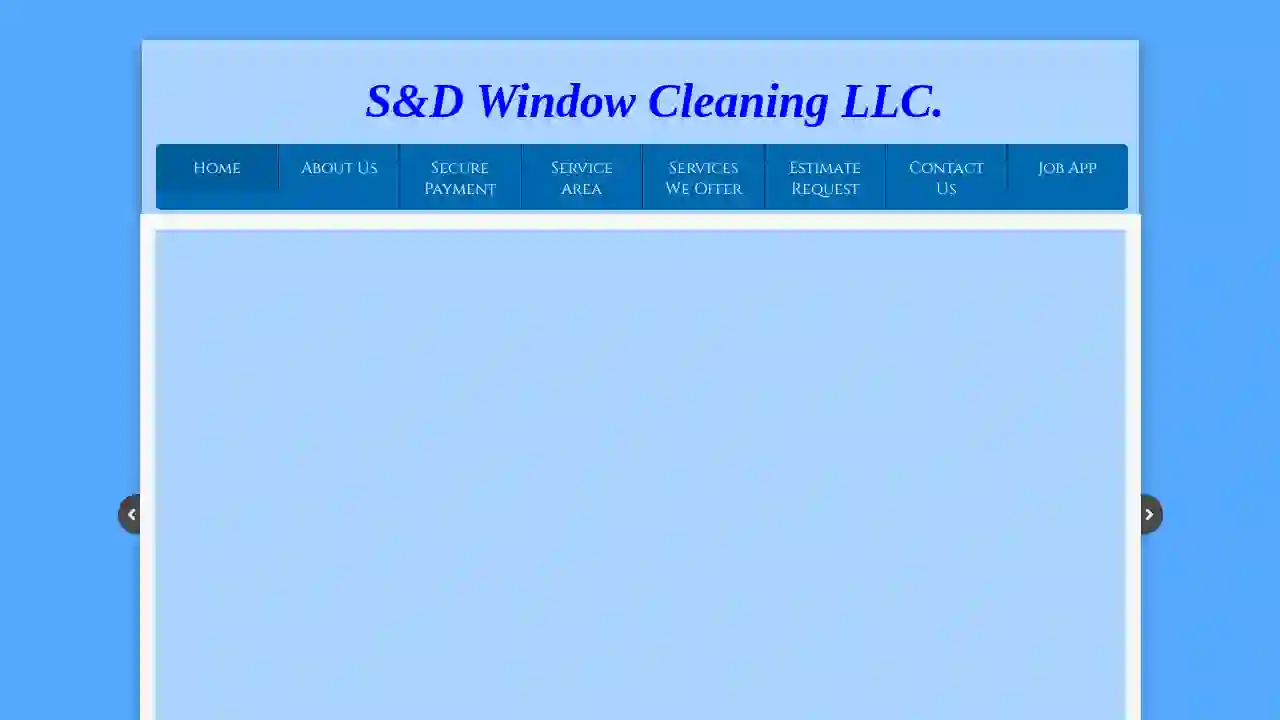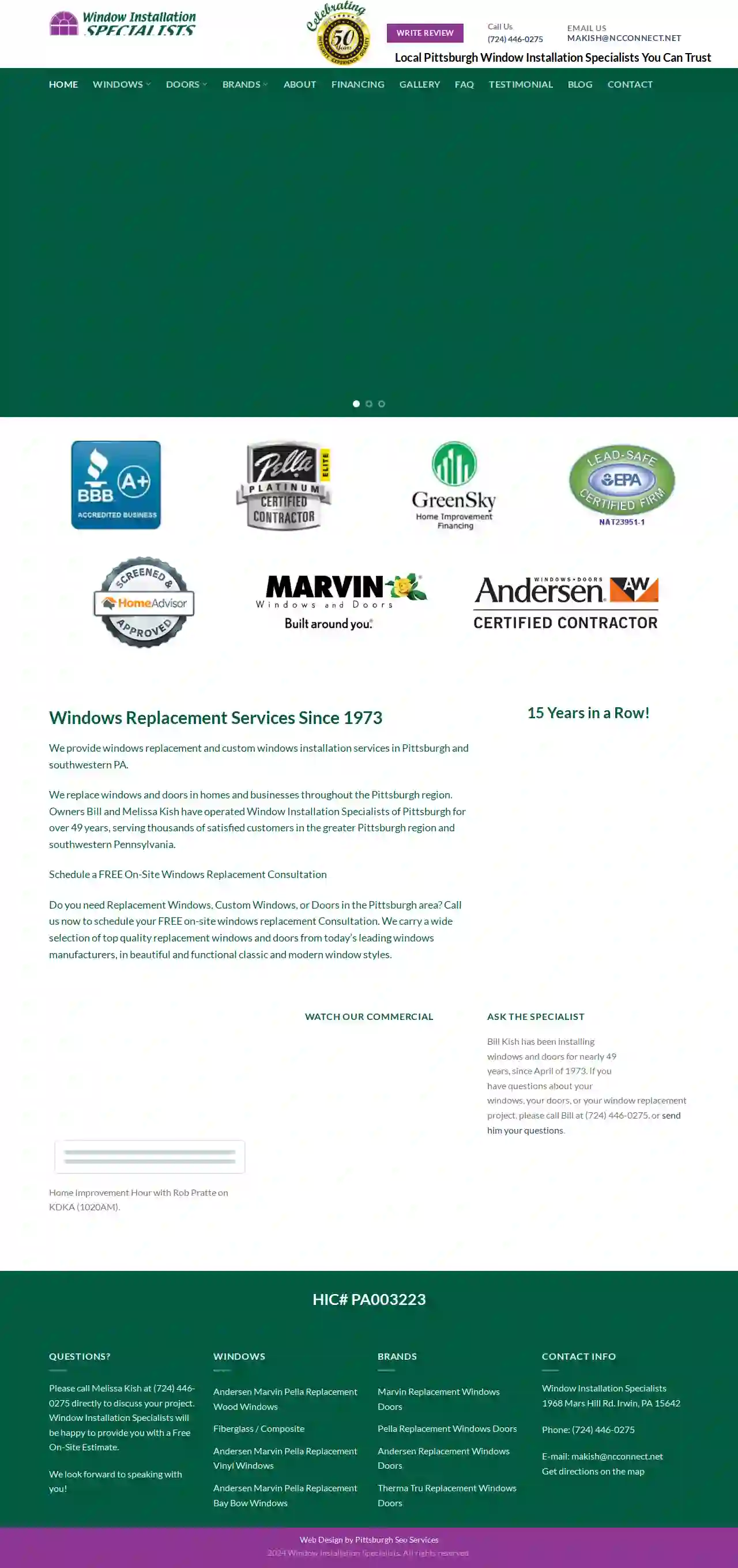Window Cleaning Center
Top 10 Commercial Window Cleaning in Center
Receive multiple Commercial Window Cleaning quotes for your project today! Compare profiles, reviews, accreditations, portfolio, etc... and choose the best service.

The Maids in Philadelphia
2.54 reviews310 Ruthar Drive Unit 4, Newark, 19711, USThe Maids is a leading residential cleaning service provider with nearly 200 locations across the U.S. and Canada. We offer personalized cleaning services that fit your budget and lifestyle, making it easy to enjoy a clean and healthy home. Our proprietary 22-Step Cleaning Process ensures a thorough and consistent clean every time. We are committed to providing exceptional customer service and building lasting relationships with our clients.
- Services
- Why Us?
- Testimonials
- Gallery
Get Quote
Empire Window Cleaning
5183 reviews4141 43rd st, Queens, 11104, USEmpire Window Cleaning is a reputable and well-known service provider in all 5 boroughs and western Long Island. Our team is up for every job, managing projects with the skill and experience our clients have come to expect. Offering affordable prices and attention to the smallest details, we want our customers to be 100% satisfied with our work. We pride ourselves on being safe, efficient, reliable, and honest.
- Services
- Why Us?
- Gallery
Get Quote
S & D Window Cleaning LLC
4.714 reviews10665 Center Highway, North Huntingdon, 15642, USProviding Service and Dependability Since 1977. Your Windows Are An Investment, Let Us Help You Protect Your Investment. Member Better Business Bureau. Follow the link below to see our A+ rating! Serving Western Westmoreland County and Eastern Allegheny County.
- Services
- Why Us?
- Accreditations
- Gallery
Get Quote
Phillywindowashing.com
4301 r Roosevelt blvd, Philadelphia, 19124, USWe are Christophers Window Cleaning. When Your Free Time Wasn't Made For Cleaning, We've got You Covered ! ! We are a full service professional window cleaning company with a high level of focus on the best customer experience possible. We use a clearly defined cleaning process to ensure that you get the same level of service every time you use our service. Service Areas Have a look to our cleaning services Window Cleaning Window Caulking Window Painting Power Washing Sidewalk Cleaning Residential Window Cleaning We are a full service professional window cleaning company with a high level of focus on the best customer experience possible. We use a clearly defined cleaning process to ensure that you get the same level of service every time you use our service. Commercial Window Cleaning We offer maintenance schedules, discounted service agreements, per call cleaning and service buildings. Rain Gutter Cleaning Downspouts clogged? Leaves pouring over the top? Whatever the cleaning issue with your rain gutters may be, we can help! With our professional rain gutter cleaning service we remove all debris from the rain gutters and clear out the downspouts and make sure they drain properly. Residential Pressure Washing Our residential pressure washing will clean off grime, dirt, mold and algae off of any surface on your home. Regularly cleaning your home insures that your home not only looks great but that your home's surfaces will stay in great shape for a longer period of time also.
- Services
- Why Us?
- Gallery
Get Quote
New York Crystal Cleaning
4.929 reviews38-17 111th St., Corona, 11368, USNew York Crystal Cleaning consistently strives to provide the most effective approach to janitorial services.Combining technologically-advanced equipment and years of maintenance expertise, our cleaning services meet and exceed top-notch cleaning services at an affordable price.Whether your business or home requires a one-time service call or an ongoing maintenance regimen, New York Crystal Cleaning offers flexible and reliable janitorial services for: Commercial Buildings, Manufacturing Facilities, Medical and Healthcare Facilities, Banks & Financial Institutions, Hotels & Motels, Schools, including Day Care Centers for Children and Seniors, Food Service Establishments, Retail Establishments, Residential and Multi-Family Apartment Buildings, Fitness Centers and much, much more.
- Services
- Why Us?
- Gallery
Get Quote
Fish Window Cleaning
4.858 reviews301 York Road Suite 106, Warminster, 18974, USWelcome to Fish Window Cleaning! We provide professional window cleaning for your home or business! We are your local window cleaning company serving New Hope, Ambler, Newtown, Doylestown, Richboro, Huntingdon Valley, Willow Grove, Warminster, Langhorne, Bensalem, Chalfont, Hatboro, Feasterville, Jenkintown, Horsham, Dresher, Abington, and Spring House. Call us today for a free on-site estimate: (215) 443-8500. We offer a wide range of services to keep your home looking clean and beautiful! We can clean all of your windows inside and out, make your chandelier sparkle, remove all debris from your gutters, and even clean your ceiling fans, mirrors, and more! We are professional, uniformed, and respectful of your home. We wear clean shoe covers and use cloth pads under your windows to protect your carpet and wood floors. We use environmentally-friendly cleaning products so you and your family won't have to deal with harsh fumes. We even introduce our workers to your home before we start cleaning, so you can meet them and feel comfortable with the service.
- Services
- Why Us?
- Accreditations
- Our Team
- Gallery
Get Quote
Summit Cleaning Pros
123 Main Street, Suite 100, Breckenridge, 80435, USSummit Cleaning Pros is a locally owned and operated cleaning service serving the greater Summit County area. We are dedicated to providing high-quality, reliable, and affordable cleaning services to both residential and commercial clients. Our team of experienced and professional cleaners is committed to exceeding your expectations and ensuring your complete satisfaction. We offer a wide range of cleaning services, including: Residential Cleaning Commercial Cleaning Move-In/Move-Out Cleaning Deep Cleaning Window Cleaning Carpet Cleaning Floor Cleaning We use eco-friendly cleaning products and techniques to protect your health and the environment. Our services are fully insured and bonded, giving you peace of mind. Contact us today for a free estimate and let us take care of your cleaning needs.
- Services
- Why Us?
Get Quote
Philadelphia's Finest Cleaners
555 reviewsPhiladelphia, Pennsylvania, 6672 Cornelius Street, 19138, USFor over a decade, Philadelphia's Finest Cleaners have been devoted to providing premium services and first-class professionalism. We're passionate about delivering outstanding results that make our customers smile - because satisfaction is what we strive for! Our team receives continuing training on the latest techniques in order to provide top-notch service every time. Get ready to be impressed by Philly's Finest Cleaners! Let us provide you with a pristine and spotless home, where every surface is treated to an intensive clean. Our speedy yet thorough service guarantees your abode will be sanitized from top to bottom in no time! We know that your needs are unique and that's why we take the time to get to know them! Plus, by bringing in experts with specialist knowledge and experience, you're guaranteed a top-notch service every single time – making sure any living or working space is looking its best again. Get your home and office looking ship-shape in no time! Experienced cleaners can whip it into organized, stress-free shape for you - so you don’t have to spend hours tidying up yourself. Ready to say goodbye to the mess?
- Services
- Why Us?
- Gallery
Get Quote
Window Installation Specialists
4.465 reviews1968 Mars Hill Rd., Irwin, 15642, USWindow Installation Specialists is a locally owned and operated business serving the Pittsburgh area. We are a team of experienced professionals dedicated to providing high-quality window and door installation services. We specialize in Andersen, Marvin, and Pella replacement windows and doors, offering a wide range of styles and options to meet your needs. We are committed to providing our customers with exceptional service, competitive pricing, and beautiful, energy-efficient windows and doors that will enhance the beauty and value of your home.
- Services
- Why Us?
- Gallery
Get Quote
BLUE OCEAN WINDOW CLEANING
4.826 reviews43 Williamson Rd, Bergenfield, 07621, USBlue Ocean Cleaning LLC has been providing a variety of exterior architectural cleaning services throughout New Jersey and New York since 1998 for residential and commercial properties. Our company’s customers satisfaction continues to remain our top priority. With over fifteen years of experience we continue to provide professional licensed and fully insured expedient services for window cleaning, power washing, gutter debris removal and surface sealent. Always offering our customers affordable and competitive pricing and ultimately ensuring our customers with one hundred percent satisfaction guarantee.
- Services
- Why Us?
- Gallery
Get Quote
Over 60,241+ Janitorial Services onboarded
Our janitorial companies operate in Center and surroundings!
CleaningMatch has curated and vetted Top Janitorial Contractors near Center. Find the most trustworthy business today.
Frequently Asked Questions About Window Cleaning
- Clear Obstructions: Remove any obstructions from windows, both inside and outside, such as furniture, curtains, or plants. This allows the cleaners easy access to the windows.
- Unlock Windows and Gates: Ensure all windows that need cleaning are unlocked and accessible. If there are gates or fences, unlock them as well.
- Secure Pets: If you have pets, secure them in a safe area away from the cleaning activity.
- Inform Cleaners of Special Requests: Communicate any special requests or concerns to the window cleaners beforehand, such as cleaning delicate windows or avoiding certain areas.
- Training and Certification: Professional high-rise window cleaners undergo specialized training and certification programs to learn safe working practices and rescue procedures.
- Safety Equipment: They use harnesses, ropes, and other safety equipment to secure themselves to the building while cleaning.
- Risk Assessments: Before starting a job, companies conduct thorough risk assessments to identify potential hazards and implement appropriate safety measures.
- Weather Monitoring: High-rise window cleaning is typically avoided during strong winds or adverse weather conditions to minimize risks.
- Twice a Year: Cleaning windows in the spring and fall is a common practice to remove dirt accumulated during the winter and pollen from the spring.
- Quarterly: If you live in a busy city or near a coast with salt spray, more frequent cleanings may be necessary.
- Monthly: For businesses, especially those with high foot traffic or prominent storefronts, monthly cleanings can help maintain a professional appearance.
Do I need to do anything to prepare for my window cleaning appointment?
By taking these preparatory steps, you can create a more efficient and enjoyable window cleaning experience for both you and the cleaners.
Is it safe for window cleaners to clean high-rise windows?
Reputable window cleaning companies adhere to strict safety regulations and invest in training and equipment to ensure the well-being of their employees and the public.
Do window cleaners clean window screens?
Professional screen cleaning typically involves removing the screens, gently washing them with a cleaning solution, rinsing, and allowing them to dry thoroughly before reinstalling. This process removes dirt, allergens, and other particles, improving both the appearance and functionality of your screens.
How often should I have my windows cleaned?
You can adjust the frequency based on your needs and budget. Consider factors like the visibility of dirt and grime, your tolerance for dirty windows, and the overall appearance of your home or business.
Do I need to do anything to prepare for my window cleaning appointment?
- Clear Obstructions: Remove any obstructions from windows, both inside and outside, such as furniture, curtains, or plants. This allows the cleaners easy access to the windows.
- Unlock Windows and Gates: Ensure all windows that need cleaning are unlocked and accessible. If there are gates or fences, unlock them as well.
- Secure Pets: If you have pets, secure them in a safe area away from the cleaning activity.
- Inform Cleaners of Special Requests: Communicate any special requests or concerns to the window cleaners beforehand, such as cleaning delicate windows or avoiding certain areas.
By taking these preparatory steps, you can create a more efficient and enjoyable window cleaning experience for both you and the cleaners.
Is it safe for window cleaners to clean high-rise windows?
- Training and Certification: Professional high-rise window cleaners undergo specialized training and certification programs to learn safe working practices and rescue procedures.
- Safety Equipment: They use harnesses, ropes, and other safety equipment to secure themselves to the building while cleaning.
- Risk Assessments: Before starting a job, companies conduct thorough risk assessments to identify potential hazards and implement appropriate safety measures.
- Weather Monitoring: High-rise window cleaning is typically avoided during strong winds or adverse weather conditions to minimize risks.
Reputable window cleaning companies adhere to strict safety regulations and invest in training and equipment to ensure the well-being of their employees and the public.
Do window cleaners clean window screens?
Professional screen cleaning typically involves removing the screens, gently washing them with a cleaning solution, rinsing, and allowing them to dry thoroughly before reinstalling. This process removes dirt, allergens, and other particles, improving both the appearance and functionality of your screens.
How often should I have my windows cleaned?
- Twice a Year: Cleaning windows in the spring and fall is a common practice to remove dirt accumulated during the winter and pollen from the spring.
- Quarterly: If you live in a busy city or near a coast with salt spray, more frequent cleanings may be necessary.
- Monthly: For businesses, especially those with high foot traffic or prominent storefronts, monthly cleanings can help maintain a professional appearance.
You can adjust the frequency based on your needs and budget. Consider factors like the visibility of dirt and grime, your tolerance for dirty windows, and the overall appearance of your home or business.